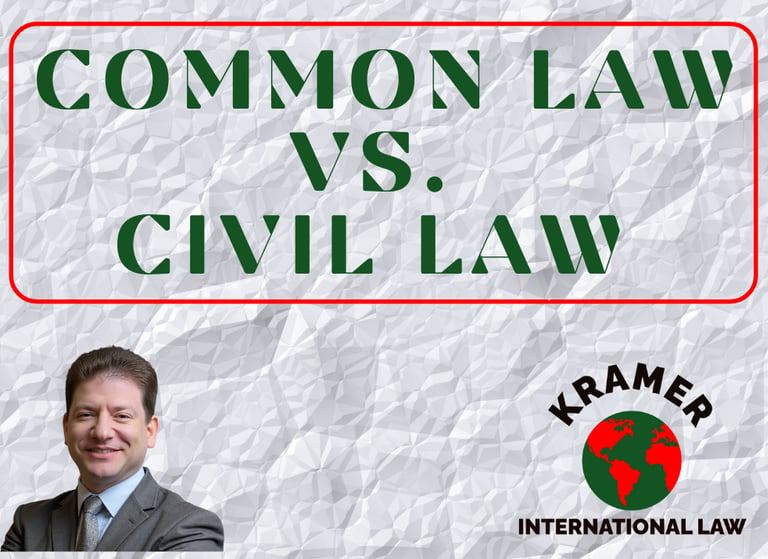Common Law vs. Civil Law
August 14, 2025
Randy S. Kramer


COMMON LAW vs. CIVIL LAW
Common Law
Features of a common law system include:
1. Codified, legislated laws do not exist to the same extent as in civil law systems.
2. Judicial decisions are binding in that the highest court's decisions can usually only be changed by that same court or by legislation.
3. There is a strong freedom of contract, meaning few legal rules are automatically applied to contracts. However, some rules exist to protect consumers.
4. Generally, anything not specifically banned by law is allowed.
Civil Law
A civil law system is a set of laws that are codified and based on Roman law. Here are its main features:
1. Civil law systems use specific legal codes, such as civil, corporate, tax, administrative, and constitutional codes. These codes outline basic rights and responsibilities.
2. Only legislation is considered binding on everybody. There is minimal scope for judge-made law in civil and commercial courts, although judges tend to follow previous judicial decisions in practice.
3. In some civil law jurisdictions, the writings (doctrine) of legal scholars can greatly influence court decisions.
4. In civil law systems, parties have less freedom to contract. Many terms are automatically included by law, and parties cannot contract out of certain situations.
BOUTIQUE INTERNATIONAL TRADE, TRANSPORTATION & LOGISTICS LAW FIRM
Providing international trade, transportation & logistics law services respecting the law of the US, Canada, and the UK
E: info@kramerintlaw.com
T (US): +1 (347) 588-4060, Ext. 1010
© 2026 Kramer International Law.


T (Can): +1 (514) 470-0717, Ext. 1010
The information on this website is for general information purposes only. Nothing on this site should be taken as legal advice for any particular case or situation. This information is not intended to create, and receipt or viewing does not constitute, an attorney-client relationship. Attorney Advertisement.
CONTACT FORM
T (UK): +44 20 3996 9356, Ext. 1010
